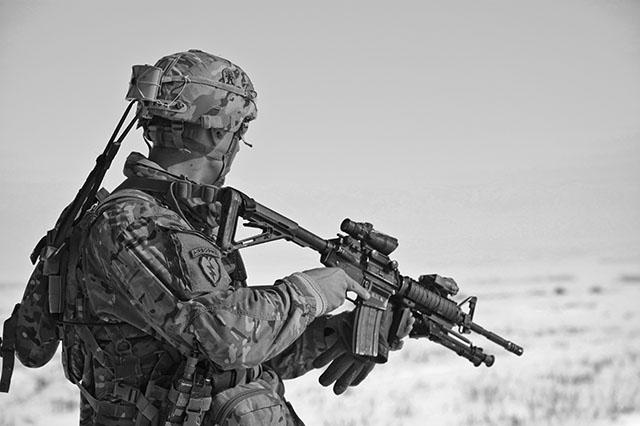Tripoli – Libya’s war-torn capital Tripoli woke up to its worst fighting in almost two years on Tuesday, as a prime minister mandated by the country’s parliament attempted to oust an interim premier.
While Fathi Bashagha’s forces eventually withdrew, the incident was a reminder of the precarious state of the North African country and the difficulty of installing a government acceptable to all sides.
What happened?
Rival armed groups clashed overnight after former interior minister Fathi Bashagha arrived in the capital with several members of his administration, which is backed by eastern-based military strongman Khalifa Haftar.
The aim was to wrest the capital from interim Prime Minister Abdulhamid Dbeibah, who has refused to hand over power to anything but an elected government since being appointed last year as part of United Nations-led efforts for a political transition.
Bashagha’s arrival sparked an hours-long firefight between his supporters and armed groups backing Dbeibah, damaging buildings and burning cars – although no casualties were reported.
Later on, Bashagha’s office said he and his ministers had left the capital to protect the “security and safety” of its residents.
Dbeibah’s government accused the former interior minister of staging “a desperate attempt to sow fear and chaos” in Tripoli.
ALSO READ | Clashes rock Libya capital for hours after rival PM enters city
The fighting was the worst in the capital since the summer of 2020, when western Libyan forces pushed back a bloody year-long attempt by Haftar to seize Tripoli.
Libya has since seen a year and a half of relative calm following a formal truce in October that year, but the ongoing political deadlock has repeatedly threatened a return to violence.
The country has been mired in chaos since 2011, when a popular revolt backed by NATO overthrew Moamer Kadhafi after an iron-fisted rule of over 40 years.
His fall left a power vacuum that rival armed groups and a series of interim governments, as well as foreign actors, have sought to fill – often using violence to gain control.
After living through two civil wars, the country has yet to hold presidential elections.
Who are the main players?
Libya’s latest standoff in some ways resembles the situation from 2014 to 2021, when it had two rival governments based in the east and west.
But that regional division has given way to a less geographically defined elite struggle.
Bashagha, who like Dbeibah hails from the western city of Misrata, earlier this year formed an alliance with Haftar and the head of the eastern-based parliament, Aguila Saleh.
ALSO READ | Armed groups clash west of Libyan capital
In his attempt to take Tripoli, Bashagha allied with the Nawasi, a powerful Tripoli militia.
The Nawasi, who “openly helped Bashagha to enter” Tripoli, on Tuesday “found itself alone and surrounded by pro-Dbeibah militias which are ultimately very well organised”, Libya expert Jalel Harchaoui told AFP.
They include in particular Brigade 444, known for being close to Turkey, he said.
Dbeibah also enjoys the support of “most of the elders, decision-makers and elites of Misrata”, he added.
“Bashagha’s city doesn’t support him. It now mainly supports Dbeibah.”
What is next?
Anas El Gomati of Libyan think tank the Sadeq Institute told AFP that Tuesday’s events were “a political disaster for Bashagha”.
“He is under pressure to prove his value to Haftar. Neither of them is able to seize the capital,” he said.
“He launched this attempt in the knowledge it could spark a conflict, but also result in Bashagha being able to remain in the capital and contest Dbeibah. But it has ended with Bashagha being escorted out.”
Harchaoui agreed.
ALSOP READ | Libya state-backed militia rejects accusations of killings and torture by Amnesty International report
“This capitulation by Bashagha will weaken him immensely precisely because of the argument he has always put forward: his ability to be accepted in the west and specifically in Tripoli,” he said.
The UN and world powers have continued to call for elections, which had been set for December but were indefinitely postponed due to deep differences between rival parties over their legal basis.
Harchaoui said continued UN calls for elections were now largely rhetorical.
“What we’re going to see now is Dbeibah continuing to consolidate his position and reinforce the system which has so far functioned,” said Harchaoui.
Follow African Insider on Facebook, Twitter and Instagram
Source: AFP
Picture: Pexels
For more African news, visit Africaninsider.com


